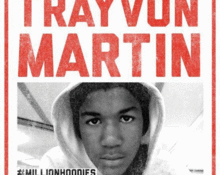Don’t think of Passing Strange as a musical. Most people think they hate musicals—probably because most musicals are terrible, or at least not good enough to turn a profit—but when a show has great music that has a vital relationship with its story, musical theatre can be everything one wants in a performance. SideCountry Theatre’s current production of Passing Strange (at ACT through June 29) is undeniably musical theatre and undeniably flawed, but it is one of the better shows you’re going to see in Seattle.
Passing Strange’s 2008 Broadway production (created by the monomial Stew with Heidi Rodewald under the guidance of Annie Dorsen) was nominated for seven Tonys and won for Best Book. This says more about the Tony Awards than the musical, as the book is the weakest part of this show (the Drama Desk gave it Best Musical, Lyrics, and Music).
This story of a black man passing for a black man is a philosophical picaresque that sounds awfully autobiographical despite Stew’s insistence to the contrary. However the language is brilliant. It slips in and out of verse such that the words slide along a spectrum from dialogue to song with pit stops at singer-songwriter interstitial patter and spoken word performance.
His search for authenticity takes the Youth (as the script calls the main character) from the image-obsessed world of middle class black Los Angeles to avant-garde Europe only to get the pretense and narcissism slapped out of him (if tenuously) by life and family. The character and the music are sufficiently appealing that what should be a tiresome tale is charming, entertaining, and sometimes moving.
The end of the story is not satisfying, as it lives in a world of metaphysical ambiguity that suggests an unfinished journey, but the production wipes away these concerns by rocking out. In the words of Fozzie Bear, “Let’s jump up and down and wave our arms, and get off stage.” Only, the performers remain on stage and invite the audience to join their dance party. This is not your typical musical theatre.
Staging this show without Heidi Rodewald and Stew is tricky business and doesn’t entirely work. The Broadway production (which I saw) was heightened by the presence of Stew and Heidi on stage with their band and the knowledge that developing the show had broken up Stew and Heidi’s romantic relationship. This production casts the lead guitar (Kathy Moore—jaw-dropping as both instrumentalist and vocalist; invisible as a character) in the role of Heidi, which may not read for the uninitiated. Other detritus of the development process that lodged in the show and no longer makes sense includes a denouement centering on a NYC pretzel seller that barely worked in the original production.
LeRoy Bell is cast brilliantly as the Narrator (a role created by Stew). This is a musical that really wants to be a rock concert and Bell, a novice actor, occasionally looks like he regrets that it isn’t a rock concert. That fleeting awkwardness serves him and the show well and keeps the production very real.
Most of the time Bell does what he’s been doing for longer than his looks would suggest. He sings and plays catchy singer-songwriter pop songs and tells great stories between numbers. For much of the show he seems like a disinterested storyteller. When he and the Youth face one another directly it has the quality of a reveal.
Marlette Buchanan is Bell’s stylistic foil. In her performance as Mother she is all musical theatre grandeur with pipes and playing that dampen the eyes. Andrew Lee Creech (Buchanan’s fellow cast member from Intiman’s excellent Trouble In Mind) nail’s Youth’s immaturity without completely losing our sympathy.
There isn’t a weak link in the ensemble, but DeSean Halley stands out for his moves and his drumming. His character’s insistence that he has no rhythm is the phoniest moment in the show. Those characters lean more toward the disposable than the self-indulgent.
Shontina Vernon brings no-nonsense swagger to her roles. She’s loud and upfront in her most prominent character, the leader of a Berlin commune, but she finds the softness and humanity in the character too. The lack of chemistry she has with Creech is exacerbated by heavy foreshadowing that this relationship is doomed.
Yesenia Iglesias goes from a slightly overblown late 20th Century black take on Booth Tarkington’s “Seventeen” year old heartthrob to the posturing anger of an anti-capitalist feminist porn-maker. Her key role as the Dutch barista, Marianna, emphasizes the commonality in each of these sweet, seductive characters.
J Reese gets some of the best character bits—and, oddly, all overtly gay characters. He doesn’t go to the scenery-chewing extremes suggested by the cultured and cloistered rebellious reverend’s son, Franklin, or the riot cabaret drag queen, Mr. Venus, but he gets the vulnerable authenticity these heavy masks permit.
Technically the highlight is AJ Epstein’s lighting and Lara Kaminsky’s projections, which support the emotional and physical settings without overwhelming them. The band is also stellar under the direction of Jose Gonzales (Sandbox Radio). Candace Franks’s costumes do the job with a contemporary touch. Tyrone Brown’s direction is hit and miss with some clever choices in the staging and some less effective ones in the physical work and pacing.
Two thirds of this show is awesome and I’m pretty sure the rest is too but I couldn’t make out the words because the sound team was overwhelmed by the monumental challenges of this production. Much as one might wish Passing Strange had been staged at Washington Hall the Bullitt Cabaret does have the proper intimacy and informality for this show. However the big sound in the ¾ thrust is more than the sound team could handle. Just when things got really rocking on opening night the vocals would disappear. One hopes they’ll get that worked out with more practice. Another week and both the technical and artistic teams should be picking up their cues and making for a faster, more smoothly flowing show.
